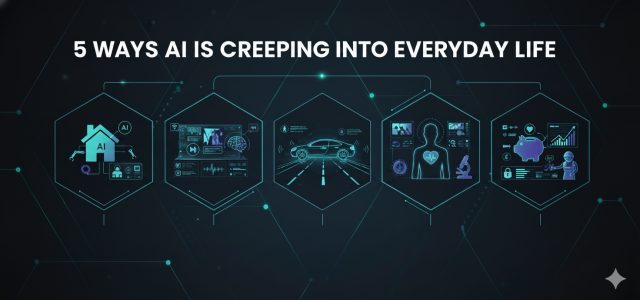
"Imagine your morning commute. You start the car, and Google Maps instantly reroutes you around a sudden traffic jam, saving you from a major delay. Or consider how Spotify seems to know exactly what song would make you smile as you brew your coffee. These little moments of convenience feel magical, but they're not luck at all - they're the work of AI quietly running in the background. AI isn't science fiction anymore."
""Hey Google, what's the weather today?" Voice assistants like Siri, Alexa, and Google Assistant have become the friendly AI brains of our homes. They use advanced speech recognition and natural language understanding to listen and respond when you talk. With a simple voice command, you can set a timer, turn off the lights, or get the day's forecast while your hands are busy making breakfast. These smart helpers are constantly learning your preferences and speech patterns, becoming more attuned to your needs over time."
AI seamlessly supports everyday activities by optimizing commutes, curating entertainment, automating household tasks, personalizing workplace tools, and enhancing financial services. Navigation apps reroute drivers around traffic and streaming services recommend content tailored to user tastes. Voice assistants use speech recognition and natural language understanding to perform tasks hands-free and adapt to user preferences, with 74% using voice search for music and 66% for weather. Smart devices learn speech patterns and preferences over time, embedding AI into routines. The result is an invisible software layer that anticipates needs, reduces friction, and delivers convenience across multiple aspects of daily life.
Read at Medium
Unable to calculate read time
Collection
[
|
...
]